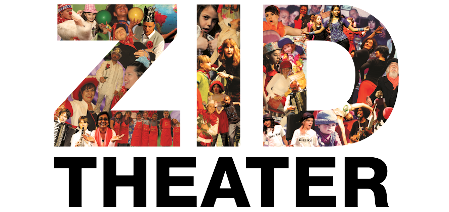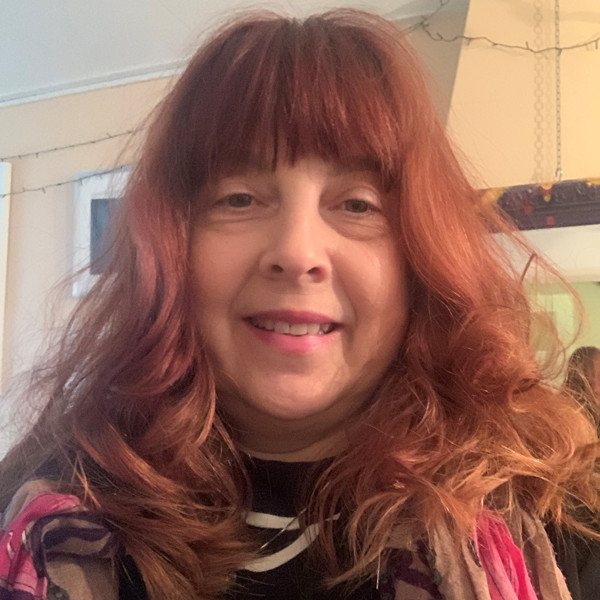Interview with ZID Theatre
Karolina Spaic, founder and director of ZID Theater
We desired to make a theater with a universal meaning that can travel the world.
Tatjana Lisjak
Karolina Spaic is the founder and artistic director of the ZID Theater in Amsterdam. Since 2016, ZID has been producing the international, multidisciplinary ExploreZ Festival. At this year’s sixth edition, the ZID Theater will present two new productions, No Fear and Re – Dreams. We spoke with Spaic, who revealed the details of the performances, what it means to collaborate on the European FATE project for their theater and artists who are immigrants, and what their experiences are with other project partners from different countries.
- 1. You founded the ZID Theater 30 years ago. What did you want to achieve then?
While studying theater school in Utrecht, I was already busy with various projects that I called ZID Theater. After I finished school, the decision was made to start an official Stichting, move to Amsterdam, and start a company. It was back in 1991 and 1992. Our first performance was called Dreams. In this performance, I met Sebo Bakker, my partner, and later husband. We’ve been working together ever since. What we wanted to achieve was to do something different from the usual, traditional theater as a young generation of artists. We wanted to approach the public and people in different ways and work differently with actors as co-creators. We desired to make a theater with a universal meaning that can travel the world.
- 2. This is the 7th edition of the ExploreZ festival. Five different theater companies from five different countries with a theme of “Roots and Future” are participating. Can you tell us more about that?
This topic “Roots and Future” is very important to us. After 30 years of work, we thought not so much about everything we wanted to leave behind, but about how everything we did, and our work would be continued by the young generation of theater-makers. The same situation is happening with the groups we invited this year, such as the Belgrade DAH Theater, which celebrated 30 years last year, and Atalaya from Spain, which has been in existence for 40 years. These are all theater institutions that have a long tradition and share the power of transformation. If you imagine, the world looked completely different 30 years ago. What the three of us have in common is that we are very present in time, at this moment, and despite so much experience, we always seek to be very current, engaged, and socially aware.
- 3. The ZID Theater presents its two productions, No Fear and Re-Dreams. What can the audience expect?
No Fear is a production we made in the context of the European FATE project. With this project, we try to expand the possibilities of participation of artists of refugee or migrant origin in the cultural world of a country. We are working on it in the Netherlands and Atalaya in Spain. In my opinion, No Fear is very interesting. We have eleven young and ambitious artists, who come from six different countries. Most of them already had a career or a theater school or a music academy, and because of different circumstances, they came here. They would like to continue working as artists, but it is very difficult because they come from another part of the world, have different education, and have no network. Our Re-Dreams performance has been dedicated to ZID’s 30 years, but we’ve turned it upside down by inviting a lot of different artists. Some of them are collaborating with us on other productions, others are new. We allowed them to watch videos and read the script so we can create a new experience together. And the topic is: What is most important in creating theater? Why? What items do you choose? What is your artistic motivation? This way, I think, it will be a very unknown kind of theater. Because it is also a kind of specific theater. When you enter a building you go in different directions and get different experiences, but it’s all related to the topic; are we dreaming of our future or participating in building our future? And those are two different things.
- 4. How difficult it is to involve migrants in The FATE project? Are you facing perhaps some bureaucratic hurdles here in the Netherlands? I know this is the case with some other countries involved in this project.
ZID Theater also invented this project because artists told us how impossible is for them to enter the world of art and culture. There are, of course, practical obstacles. Since they come here with a lot of negative experiences, they were forced to leave their countries, it was not their choice. So they don’t know the country, language, anything. It takes more time to get an official decision on whether or not they can stay. These people are in specific circumstances and are not so busy connecting in the art world. They are busy surviving, mentally busy surviving. Despite many obstacles in this process, we have seen a huge transformation in the last two years. The COVID-pandemic came during this time, it was hard, but they were all very eager and powerful to keep going. They had a dream. They continued with us through all the difficulties and now that they see this performance they are amazed. It’s such a beautiful young fresh energy because now they feel empowered. We hear it from them, young director Daan Bosch and Sebo Bakker who were coaching them. And both things are very important, you can’t just say, ok let’s play, you need a process that will encourage and empower people and make them aware of what it means in these circumstances in the Netherlands. But what I want to say is, I think we did a great job. The performances were fantastic, but we can’t do it alone. We are just one organization that needs partners all over the Netherlands and Europe and that is why we work at the European level, now basically in the Netherlands because they live here, they want to settle here. They are musicians, dancers, and actors who need the opportunity to participate in different projects. Now they are ready to enter the cultural scene.
- 5. What are you trying to say, they are ready to enter the Dutch art scene, but is that scene open to them?
That’s a good question. I do not know. We have very good experiences with different partners, but I think we also had a lot of questions from official organizations that ask why these people have to enter the arts and culture as well? I think the question is insane! The question is not appropriate because every person has the right to enter the art and cultural scene. But the question is merely opposed because they have so many difficulties, and they have to learn a lot, so why don’t they get some normal job?! You know, it’s amazing, they’ve all told us how they got information from official institutions that art in the Netherlands is a hobby, not a profession. I don’t think this is right. So this is how it starts. We are now where we are going. I don’t think it’s easy.
- 6. When do you plan to finish the FATE project and are you starting some new projects funded by the European Commission?
The FATE project is a Creative Europe project and will officially end in December 2022. It involves five countries: The Netherlands, Spain, Greece, Serbia, and Italy. Each partner has a different role in the project and different experiences and I think this is just the beginning. Of course, we want to continue, we want to continue here in the Netherlands, we want to continue at the European level, and we have other European projects. We have another European project supported by Erasmus Plus, a project called Tone which we are doing together with the University of Turin. It was in the same period, but it will continue for a longer time. What we do within Tone is write manuals on how we can include refugees and migrants because now we have a unique experience that we want to share to help other cultural organizations do the same. So not only are we doing the performance, but we are also very busy with the level of making sustainable materials and also trying to understand the method behind it. Because it’s not easy, but it’s possible. You just have to be focused and committed to it.
- 7. What would be your message to other leaders in the cultural sector in the Netherlands regarding this project?
I think it’s important to look through a different lens. If you take the perspective of one culture and look through a very diverse production, people with a lot of experience and knowledge from different parts of the world, you will not achieve the right experience. You have to be a little open to understanding this person, they are also pioneers and the voices of the large groups of people they represent. It is not about six or ten individuals, but about thousands of people coming to the Netherlands and other countries who want to be represented in art and culture.


